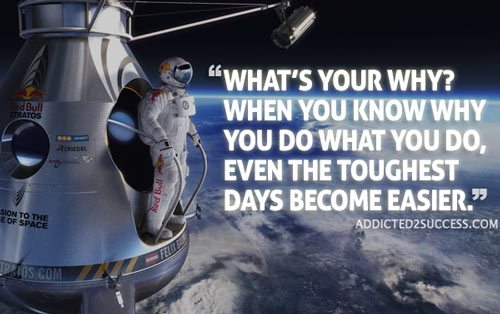Life
5 Ways To Find Your Purpose So You Won’t Miss Your Moment

There’s a moment somewhere between planning a dream and putting it into action. Most of us can dream, we can even visualize our success. We attend seminars to build our plan and to be inspired. We pay for strategizing, mentors, cheerleaders, and how-to programs until we’ve spent enough to buy a luxury car.
I’m not saying these coaches and mastermind sessions are wrong; they serve a valuable purpose if you know what you’re looking for. What I am suggesting is that there is a moment, half as long as an inhaled breath that lingers between having a plan and acting on it.
Have you ever planned to get up early in the morning to work out? You set the alarm for 5 a.m. You even determine to have it across the room so you can’t hit the snooze. The alarm goes off. You get up to turn it off. There’s the moment! You face ‘the moment’ choice; work out or go back to bed.
If you go back to bed, some may say you’re lazy, lack discipline, or aren’t serious. I’ve seen the most disciplined person metaphorically go back to bed. What’s in that moment that will make some get up and work the plan?
Focus is part of discipline, motivation can be fickle, and perseverance and determination must have a birthplace. Standing on a cliff, one hundred feet above water there must be a strong enough reason to actually jump. If a loved one, or a child, were drowning, and you had the ability to save them, jumping would be second in thought for almost all of us.
What changed? The Why. The purpose. The moment between planning and doing is the reason behind the plan. What motivates a person to plan and then act?

For some of us, being held hostage by fear is enough to agree to try and fail rather than wonder later in life what might’ve happened if you’d tried. Maybe you’ll need to start with facing down your fears.
For others, avoiding regrets will be your bridge to cross over. Regrets don’t buy memories, get on with being regret free. When you’re sitting in that rocker during your golden years, you’ll want a story rather than a ‘what if’?
Spanning that gap between planning and acting may be as simple as defining your purpose. Once you know why you want to do what you want to do, it’s the rope that you can build the bridge to cross over on.
Here are 5 steps you might need to take:
1. What do you want?
Dreams are the spice of life that keep us engaged in living. Based on your hopes, passions, skills and current situation, determine your end goal. Once you know where you want to be—what success will look like—then you can begin to work backward to where you are. Setting steps in incremental pieces will set your plan in motion. Ask yourself the hard questions:
- Can you do this for long hours every day?
- Is there a market to make a living at what you want?
- Does this fulfill a purpose in you?
- Does this align with who you are and who you want to be?
- What’s the first step I need to take?
2. What will it take to get it?
Listing the positives and negatives will build a clear plan inspiring confidence to move forward. Ask yourself where will this plan put me? Where will I be if I don’t follow through? Are you a person who prefers being an employee or an entrepreneur? Don’t be fooled, you’ll work much harder at being an entrepreneur than you will at being an employee, but the entrepreneur is limited only by themselves. Perhaps by asking this question, you’ll discover you prefer to let someone else carve the way, and you’re happy charting the path.
3. Research the possibilities and your expectations
Know the answers before the questions are asked. It’s your dream, and you should know what it takes to get there so well that you’ll recognize when opportunities arrive. Successful people like to pass on their secrets. Look for people who can help you along the way. Align yourself with their methods, later you can find your own process and techniques.
4. Be prepared for opportunities to come your way
Business owners tend to want to see others succeed, use them for knowledge, accountability, quality evaluations and as a resource. They often can see quickly and clearly what you cannot. Every new business owner makes rookie mistakes, use them to invite change. Eliminating a shotgun approach will help you filter opportunities and move you forward quicker. Network with other entrepreneurs to see what they are doing. Write down all the great ideas you hear, and adapt them for your business. Be open to asking other entrepreneurs and customers what they think you’re doing right, wrong and areas you could improve in. You’ll be surprised at the great ideas you can gather. When customers are invested in you, you’ll be amazed how many more opportunities will come your way.
“One day your life will flash before your eyes, make sure it’s worth watching.” – Gerard Way
5. How will you know when you’re ready to jump?
Once you’ve laid out a clear plan, and you have a pretty good idea what the outcome will be, you’ll build the confidence you need to jump. Starting your own business is hard work. At times, the hours are long and tedious. The guarantee of a paycheck isn’t there until you establish yourself and for a while you may wear many hats. Having a plan, like a map, will help to hang on when it gets tough and you’ll be less likely to give up. Ask yourself again, “Why did you first begin this adventure?” No matter the reason that got you here, the comfortable cliff standers, or the leap before we look swimmers…there comes a time when the reasons for jumping become stronger than staying. There will always be adjustments, but your plan will give you the confidence you’ll need to jump.
If you are prepared with your purpose, understanding where you are going, then when opportunity knocks, ANSWER THE DOOR!
What did it take to move you from where you were to where you wanted to be? Why did you jump?
Life
Why Moving to a New City Can Change Your Mindset
Discover how moving to a new city boosts neuroplasticity, builds resilience, and reshapes your mindset

Relocation is always a challenge. Rebuilding and restarting your life requires you to step outside of your comfort zone. (more…)
Change Your Mindset
The Hidden Reason You Can’t Stay Consistent
If motivation keeps failing you, the real issue isn’t discipline. It’s the identity shaping your habits and long-term success.

Success often looks like a time-management problem. You buy a planner, set reminders, and hope that next week will be different. For a few days, it works. Then stress hits, motivation drops, and old patterns return. (more…)
Did You Know
How Skilled Migrants Are Building Successful Careers After Moving Countries
Behind every successful skilled migrant career is a mix of resilience, strategy, and navigating systems built for locals.

Moving to a new country for work is exciting, but it can also be unnerving. Skilled migrants leave behind familiar systems, networks, and support to pursue better job opportunities and a better future for their families. (more…)
-

 Business4 weeks ago
Business4 weeks agoEntrepreneur’s Guide to Pay Stubs: Why Freelancers and Small Business Owners Need a Smart Generator
-

 Business4 weeks ago
Business4 weeks agoThe Salary Shift Giving UK Employers An Unexpected Edge
-

 Scale Your Business4 weeks ago
Scale Your Business4 weeks ago5 Real Ways to Grow Your User Base Fast
-

 Business4 weeks ago
Business4 weeks agoThe Simple Security Stack Every Online Business Needs
-

 Finances4 weeks ago
Finances4 weeks agoWhy Financial Stress Is One of the Biggest Barriers to Personal Growth
-

 Business3 weeks ago
Business3 weeks agoWhy Smart FMCG Entrepreneurs Outsource What They Can’t Automate
-

 Business3 weeks ago
Business3 weeks agoWhy Entrepreneurs Should Care About AI Automation Testing
-

 Business3 weeks ago
Business3 weeks agoWhat Every Business Owner Should Know Before Investing in API Integration






























1 Comment